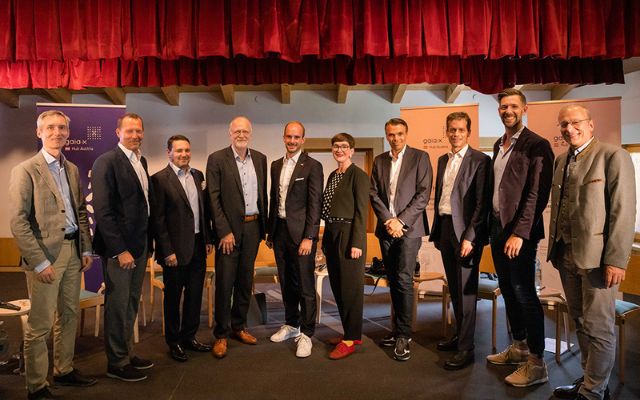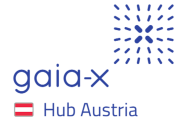
© EFA/Philipp Huber
Gaia-X Hub Austria discussed the necessary positioning of Austria in a future sovereign, digital Europe with representatives from industry and administration in Alpbach.
Due to global digitalisation in all areas of society, the prosperity of future generations will be influenced by data-based business models. Europe must transfer its economic and technological strength as well as its political weight into the digital space. None of the major global internet or data companies are from Europe and the EU’s dependence in the data economy is obvious. New regulatory strategies and laws for handling data, as well as new market-provided capabilities and IT services, must break down existing monopoly structures to enable progress in and for Europe. With the Gaia-X initiative, Europe has set out to ensure the greatest possible data sovereignty for future data-driven markets. Confidentiality, data protection, cyber security, technology neutrality and interoperability are core European values. Gaia-X provides rules and regulations for a sovereign cross-organisational data exchange as well as corresponding software components according to the open source principle. Roland Fadrany, Chief Operating Officer (COO) of Gaia-X European Association for Data and Cloud AISBL, presented this strategic objective and the state of current technology development. Thomas Hahn, Siemens AG, Chief Expert Software and President of the Data Value Association (BDVA), underlined the fundamental importance of an effective, secure and sovereign data exchange for European industry on the basis of already existing industry projects and derived the basic requirements for Gaia-X from this. Furthermore, a worldwide implementation is necessary due to global business.
In order to make this digital development tangible for the Austrian location and to bring in Austrian interests, the State Secretariat for Digitalisation in the Federal Ministry of Finance (BMF) together with the Federal Ministry for Climate Protection, Environment, Energy, Mobility, Innovation and Technology (BMK) set up the Gaia-X Hub Austria at the end of March 2022 (www.gaia-x.at) in an exemplary initiative. A management board of renowned experts from the Austrian ICT community supported by both ministries and chaired by Helmut Leopold, Head of Center for Digital Safety & Security at AIT, will ensure the effective implementation of the hub’s goals: the competitiveness of Austrian companies is to be strengthened, sovereignty in a modern data economy is to be increased and important accents are to be set for the green transformation.
Florian Tursky, State Secretary for Digitisation and Telecommunications at the BMF, emphasised the importance of the standardised set of rules of Gaia-X for easy data exchange, which also allows SMEs to benefit from the advantages of data spaces, as a basis for a competitive economy. Henriette Spyra, Section Head Innovation & Technology at the BMK, emphasised the necessary collaboration of different actors as a prerequisite for sustainable value chains as well as the need to use data bases and interfaces for the green transformation. Jochen Borenich, Member of the Executive Board K-Businesscom AG, underlined that Austrian IT companies have a high level of technical IT competence in order to implement the ambitious Gaia-X goals for the creation of modern data eco-systems in Austria as well. Christof Tschohl, Head of the Research Institute – Digital Human Rights Center, described computer security as a constitutionally protected good and emphasised that the European data protection agenda is an international role model and does not contradict sensible data business models. Roland Fadrany attested to the Austrian hub’s exemplary effect as an established information hub, especially in the design of transnational cooperation initiatives and the clear definition of success criteria. Helmut Leopold emphasised the fundamental importance of close and trusting cooperation between politics, administration, industry and research in order to contribute to solving the major challenges of the future of our society and economy with well-designed digitisation.
Using the examples of “CO2 Footprint in Manufacturing” – based on the European project EuProGigant – and “Circular Economy in Battery Production”, the Gaia-X Hub Austria experts Mario Drobics, Head of Competence Unit Cooperative Digital Technologies at AIT, Christian Tauber, Head of Platform Services, K-Businesscom AG, Roland Sommer, Managing Director Industrie Plattform 4.0 and Tobias Höllwarth, EuroCloud, discussed the various strategic, operational and technical aspects of implementing future data models with the participants. The summary of the discussion was that it is now crucial to push for Europe-wide collaboration and to use the Gaia-X framework as a starting point for building data ecosystems in order to build sustainable resource-saving production processes and circular economies, modern environmental management, CO2 reduction, renewable energy systems and efficient healthcare systems, etc.


